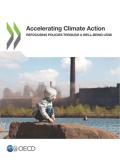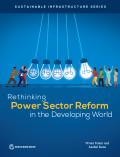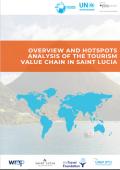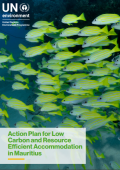
This report Accelerating Climate Action: Refocusing Policies through a Well-being Lens builds on the OECD Well-being Framework and applies a new perspective that analyses synergies and trade-offs between climate change mitigation and broader goals such as health, education, jobs, as well as wider environmental quality and the resources needed to sustain our livelihoods through time.

Rethinking Power Sector Reform in the Developing World presents a comprehensive picture of developing country experience with power sector reform that distills the lessons learned over the last 25 years and reflects on how recent technological trends that are disrupting the sector may call for new thinking on reform strategies.
In this paper Steering International Adaptation Finance Towards the Local Level, several key challenges and potential solutions for channelling money from the international to the local level have been identified and analysed. The analysis sheds light on promising elements of so-called elevator functions (specific strategies or operating principles within programmes that aim to channel funding effectively through vertical administrative levels from the international to the local level where it is meant to unfold maximum impact) in existing financing mechanisms from different sectors that are potentially suitable for adaptation finance.

The "Overview and Hotspots Analysis of the Tourism Value Chain in Saint Lucia" assesses the environmental hotspots (areas of significant negative environmental impact) associated with the tourism sector in Saint Lucia.

The "Action Plan for Low Carbon and Resource Efficient Accommodation in Mauritius" sets out a roadmap to a sustainable and resilient tourism accommodation sector in Mauritius and is aimed at accommodation providers, their suppliers, government bodies and other stakeholders involved in tourism.
